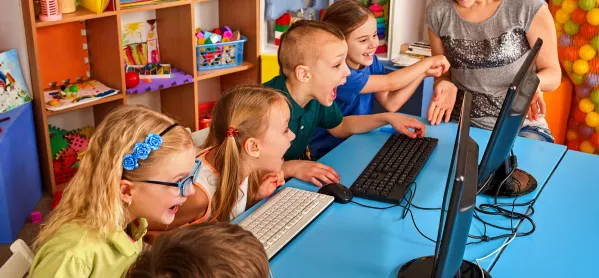Will computer games ever be acceptable in classrooms?

Ask someone to picture a classroom and they probably imagine a traditional set-up of rows of pupils at desks, a teacher at the front, and books and recent project work on the side.
Proposing a situation where pupils are playing computer games that are teaching core learning concepts and the reaction would probably be one of dismay. But why? In a modern, digital classroom, should teachers not be able to use the best resources to boost teaching and learning outcomes - including computers games?
Professor Sara de Freitas, pro-vice-chancellor for education at Aston University, certainly thinks so and puts forward her case in a presentation with the provocative title: “Is it unethical to not use games in education?”
“Maybe it takes people a little out of their comfort zones but when you see research findings that say games are more effective than traditional learning then maybe it is an ethical issue as to why we are not using them.”
Gaming boosts
This isn’t anecdotal, but based on research she has been involved in, including one study from 2010 that found gaming led to better learning outcomes for teaching medical professionals how to deal with major triage incidents.
“Serious game technologies offer the potential to enhance learning and improve subsequent performance when compared to traditional educational methods,” the research concluded.
Anyone who is a fan of gaming may not be surprised to hear this - games can be engrossing, demand creative and logical thinking, strategy planning and the perseverance to try again and again - not too dissimilar to some of the core skills at the heart of learning.
And as technologies such as VR headsets from Google, Microsoft’s AR HoloLens device or EEG headsets from firms like Qneuro continue to show their potential for learning outcomes, they could well usher in a new era of game-based learning.
A tool in the arsenal
However, this does not mean classrooms of the future will become unrecognisable with children doing nothing but playing games.
Teacher Chris Aviles runs a website called Techedupteacher.com that documents his experiences with gaming in the classroom. Clearly he is convinced of the merits of game-based learning but says it should only become another tool at a teacher’s disposal, and not take over the classroom.
“People need to understand that, number one, people learn better when taught through something they like and, number two, using video games in the classroom is not going to become the only thing that is happening - it will usually be an add-on to teach a point,” he says.
Ollie Bray is a former teacher who now works for the LEGO Foundation and has been heavily involved in using gaming in classrooms for a number of years, even winning the UK Microsoft Innovative Teachers Award for Computer Games-based Learning in 2011.
“I first became interested in using computer games in the classroom nearly 20 years ago when I used a version of Sim City to engage my pupils in settlement geography theory,” he adds.
He agrees that gaming in the classroom is about complementing learning, not becoming the sole thing a teacher would do. “A good teacher will use all the tools they can - sometimes learning outside, sometimes using computer games and sometimes getting out colouring pencils.”
Social barriers
However, he admits there could be cultural barriers that slow the adoption of gaming in the classrooms, irrespective of the benefits it can deliver.
“The challenge with anything new is that parents and education decision-makers have been to school and so have an opinion on what school should be based on what they did - not what it could be,” he says.
Mr Aviles agrees: “People are afraid of things they don’t know and technology, and especially video games, are one of those places where kids know more than adults, and adults are scared by the fact they don’t know everything.”
Of course this could change over time, as a new generation of teaching professionals and policy makers reach a level to implement change and bring new ideas to the fore, as Professor de Freitas notes.
“You are already seeing changes as generations come through and I think a lot of young people, including teachers, that are millennials or even Generation Z don’t think about using technology - it’s just part of their lives,” she says.
Given this, Mr Bray thinks more needs to be done to incorporate how gaming can boost teaching within training - both before becoming qualified and as part of ongoing skills development - to ensure teachers at all ages are ready for this change.
“We need to ensure teacher training is up to date with new tools and techniques, and that ongoing CPD for those in the profession is updating and upskilling them in modern learning techniques too.”
Even if this happens there will still be other issues to overcome, not least financial constraints, as Professor de Freitas notes.
“For me I think the challenge is having the resources to invest in it properly. This is where governments need to play a role in supporting innovation in school as budgets are stretched and it’s hard to think beyond the basic stuff and there is not enough money for innovation,” she says.
Cultural barriers, teacher training, financial constraints - it’s clear there is a little way to go perhaps before computer games in the classroom as learning aides becomes the norm. But if the benefits are there then Mr Wiles believes it is a question of when, not if, gaming in the classroom becomes commonplace.
“I can’t see it not happening - there was a day when people had never watched a movie in a class and who was the first teacher who said, ‘hey I can connect a book to a movie’?” he says, adding: “You can’t stem the tide of change.”
